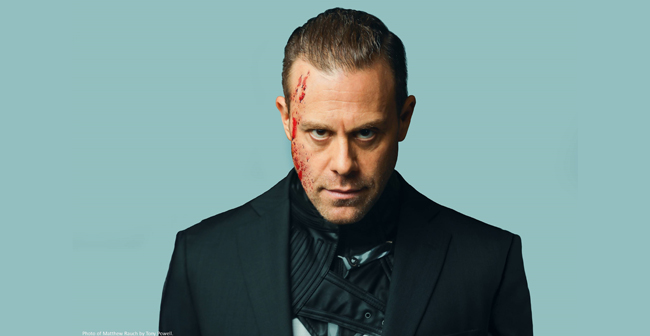Culture
 Photo: Courtesy of Shakespeare Theatre Company
Photo: Courtesy of Shakespeare Theatre Company
Modern Shakespeare: Richard the Third at STC
February 4, 2019 @ 12:00am
“Now is the winter of our discontent.”
The opening line of Richard the Third would have you believe that all hardships are over and only good days are to come. But as theatergoers attending Shakespeare Theatre Company’s (STC) upcoming production of Richard the Third will soon realize, anything but peace lies ahead.
Directed by David Muse for STC and running from February 5 through March 10, Shakespeare’s Richard the Third follows the titular role of Richard on his ambitious quest for the crown. A spiteful megalomaniac, Richard (Matthew Rauch) will stop at nothing until he sits on the throne, and thus invites the audience into a world of murder, villainy and even dark fun.
“Yes, Richard does horrific things in this play,” Rauch says, “but my hope and David’s [Muse] hope, I think, is that at least for the first part of the play, the audience reaction will not be ‘Oh, what a terrible person,’ but ‘Oh, isn’t he just deliciously evil’ and it’s terrible, but it’s fun to watch.”
Rauch emphasizes that just because the title of the play is Richard the Third, it doesn’t mean the story is only about him.
“It’s very easy with a face on the poster and the title of the play, for people to think there’s only one person involved,” Rauch says. “The truth is there’s about a hundred people involved and all of them are crucial.”
Some of those crucial people are the women around Richard, including his mother the Duchess of York, Margaret of Anjou and Queen Elizabeth. Rauch points out that while Richard can brilliantly manipulate people and events, these particular women don’t bend easily to his will and disprove the outdated notion that Shakespearean women are damsels in distress.
But a fourth woman equally as important to the play’s development, Lady Anne of Neville (Cara Ricketts), is the person who perhaps best understands Richard.
“Richard sees himself in [Anne] and she sees herself in him, in a way that she probably feels like she may break through to him,” Ricketts says. “He pretends it’s a possibility and she falls for it.”
Bust because Anne is ultimately manipulated by Richard, this doesn’t make her simple.
“My Anne is not a pushover,” Ricketts says. “There’s nothing soft about these women. The foundation for these characters has never been soft women.”
Ricketts adds she is ready to play Anne the way an audience 70 years ago may not have let her.
“During the 50s, you had preconceived notions about what a woman was in terms of society so that’s what you got,” Ricketts says. “Now I’ve got a chance to let loose the girdle and make it rip, so that’s what I’m doing while respecting what that character is.”
These preconceived notions of Shakespearean women are not the only ideas cast and crew hope prove outdated. Perhaps one of the most famous scenes in the play is the “wooing scene” where Richard interrupts Anne’s mourning of her father-in-law.
Rauch stresses that while many feel the scene is “creepy” and Richard comes off as “sexually predatory,” this is not the way they plan to portray Richard.
“The only event that needs to happen in the scene is that Anne consents to come to Richard’s house. Nothing else is implied in that scene or on the page and my hope is that it will not come off as sexually creepy,” Rauch says. “David [Muse] and I were never interested in a Richard who was sexually predatory, not because it’s not politically correct, but because we didn’t believe there was anything in the text that supported that.”
Changes in the character’s tones will not be the only noticeable differences in STC’s Richard the Third production. About 40 percent of the original text – mostly obscure English history – has been cut for a streamlined production.
“The Shakespeare Theatre is, I would argue, literally the best classical theater in the United States,” Rauch says. “They know how to do this here and they have created such a web of support.”
Rauch adds that despite the play’s age, audience members will find a lot of similarities between the 500-year-old story and modern society.
“[This is] a story about a deeply complicated, manipulative, brilliant person who rises to power and the people who are complicit in his doing so,” Rauch says. “All you need to do is read the front page of the New York Times to find parallels to that story.”
See Richard the Third at Shakespeare Theatre Company from February 5 through March 10. Runtime is 2 hours and 30 minutes with one 15-minute intermission. Tickets start at $44. For more information, click here.
Shakespeare Theatre Company’s Sidney Harman Hall: 610 F St. NW, DC; 202-547-1122; www.shakespearetheatre.org







